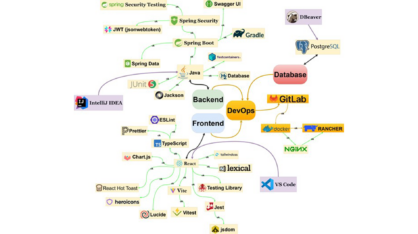As technology continues to evolve and become more widely adopted, an increasing number of people are using digital devices such as laptops, PCs, and smartphones. Research suggests that people are becoming less inclined to engage in face-to-face communication, which served as the motivation for this project.
Studies have shown that young people in countries like the UK and China are highly motivated to explore creative applications. Successful examples, such as WeChat, demonstrate how integrating community chat with online payment and purchasing systems can significantly enhance user convenience.
This project combines a reservation system with real-time chat functionality, allowing users with shared interests to connect and communicate. The front-end is built using HTML, CSS, and JavaScript, with JavaScript playing a central role in creating a dynamic booking list.
Unlike traditional booking systems that rely on static lists and single-provider data—often leading to user inconvenience and booking cancellations, this platform offers a dynamic experience. For instance, when a user books a sports activity, the system displays subcategories such as location, time, and contact number. If the user selects a medical appointment, additional fields like patient age and doctor’s name are included. This flexibility not only enhances the user experience but also makes it easier for developers to expand the platform in the future.
The project aims to make life more convenient by sending booking confirmations via WhatsApp. Once users register and make a reservation based on their interests, the system sends a message directly to their WhatsApp number, improving delivery rates compared to traditional SMS or phone calls.
The back-end is developed in Python using Flask, with Flask-Login and Flask-WTF for user authentication and form handling. SQLite is used as the database, ensuring compliance with GDPR and providing CSRF protection. The platform is designed to support future enhancements, such as instant feedback, new categories, and improved user safety. The database also enables the storage of more detailed information and the addition of private features.
Socket.IO is integrated to facilitate faster communication between clients and services, reducing message latency. Initially, the project used Twilio for messaging, but it was later replaced with PyWhatKit—a free and Python-friendly API for WhatsApp integration. While PyWhatKit is easy to use, it has some security limitations and can occasionally cause system crashes. However, after significant development effort, the system now functions reliably, successfully delivering messages to users.
There is also potential to integrate additional third-party APIs, such as Instagram or Facebook, to expand the platform’s user base.
Conclusion
This project presents a community-based reservation application that merges social networking features with online booking. The community aspect is built entirely around shared interests, offering users a more engaging and personalized experience.
Full thesis can be found at https://urn.fi/URN:NBN:fi:amk-2025053018478




